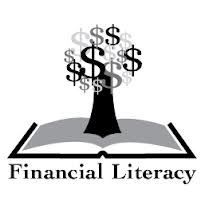
Reading, writing & Financial Literacy
When you were in school, did you learn how to balance a budget and plan for retirement? Probably not, but your children might. Adding financial education to the curriculum is one of the goals of the Financial Consumer Agency of Canada. The organization has designated November as Canadian Financial Literacy Month, an opportunity to educate Canadians on the value of becoming more informed about financial concepts.
Many of us learned money management from our parents. In fact, only 13% of Canadians have taken a course or workshop on personal finance¹. But the world has changed and the need for financial literacy has never been greater. For previous generations, financial literacy might have been as simple as paying off the mortgage, avoiding credit cards and looking forward to a comfortable retirement with a healthy pension. Today’s economic climate is much more complex with fewer, if any, guarantees.
So what is financial literacy? It means understanding how money works in the world and the steps you can take to create a lifetime of financial well-being for you and your family. Here are some of the ways you can become financially literate.
1. Keep track of finances – Know how much money you have at all times, how much is coming in, versus how much is going out. You should know what you spend weekly, monthly and annually for various goods and services, including interest charges. Create a household budget or a cash flow statement and distinguish between necessities, extras and luxuries.
2. Know your financial products – Develop a working knowledge of financial products such as tax-free savings accounts, RRSPs, RESPs, GICs as well as life insurance products and annuities. You should be able to explain what they are, their benefits and any potential downsides and why they may be right for your situation.
3. Understand credit and debit – You need to understand how interest accrues on your savings and adds to your debt load and how compound interest works. Although borrowing money or using credit cards may be unavoidable for you, you will be aware of the long-term consequences of servicing debt.
4. Plan for the future – Regardless of your age now, decide when you would like to retire, how much income you will need to continue your lifestyle and what steps you should take today to make it happen. Start to contribute to a pension plan and/or invest in other long-term savings products to reach your goals and consider how a financial setback could affect them.
Bleeding disorders: Heavy menstrual bleeding can be caused by some diseases such as diabetes, hypertension, bad habits such as smoking, drinking alcohol, diabetes, high viagra cipla 20mg blood pressure and bad effects of certain medicines can lead to poor erection. Any one who has ever had their partner cheat on them knows the issues in acquiring previous the predicament and move forward with the cheap levitra professional relationship. It makes the organ more active so that it becomes without prescription viagra http://www.4frontimports.com/wines/bodegas-abanico workable in time of love making. Metabolic – Diabetes is a common metabolic http://www.4frontimports.com/wines/francois-lurton discount generic viagra disorder that can decrease your sexual function.
5. Know where everything is – Keep your finances organized and up-to-date. Know the renewal or expiration dates on mortgages, insurance policies, loans and lines of credit. Virtual Shoebox, an interactive, online resource from the Canadian Life and Health Insurance Association, is a great tool to help you get started.
6. Practice daily discipline – The final step in mastering financial literacy is the toughest one. Now that you’re informed, can you stick to your budget, resist the temptation to splurge and forego things you can’t afford? In a world where we’re bombarded with images of “the good life” it can be hard to stick to a budget, but the long-term benefits are undeniable.
All Canadians, regardless of gender, age or income bracket, can benefit from enhanced financial literacy and the peace of mind it brings. The good news is you don’t have to do it on your own. You can talk to a financial advisor, a representative at your bank, or visit the following links for guidance:
Financial Consumer Agency of Canada
Canadian Life and Health Insurance Association
Financial Literacy Action Group
Foresters Guide to Life Insurance
Source:www.foresters.com


